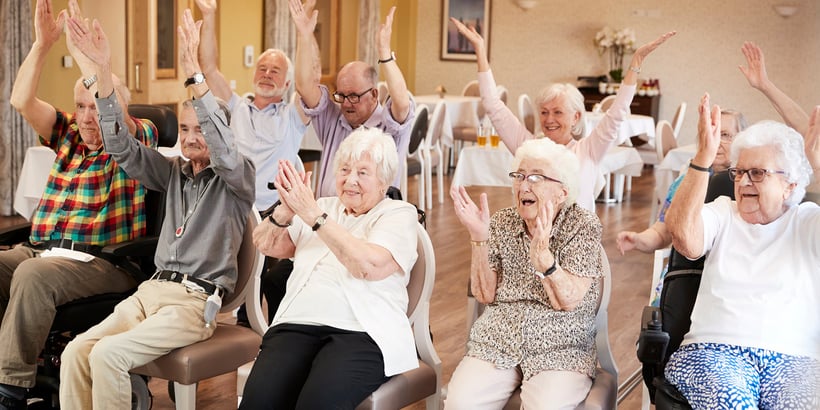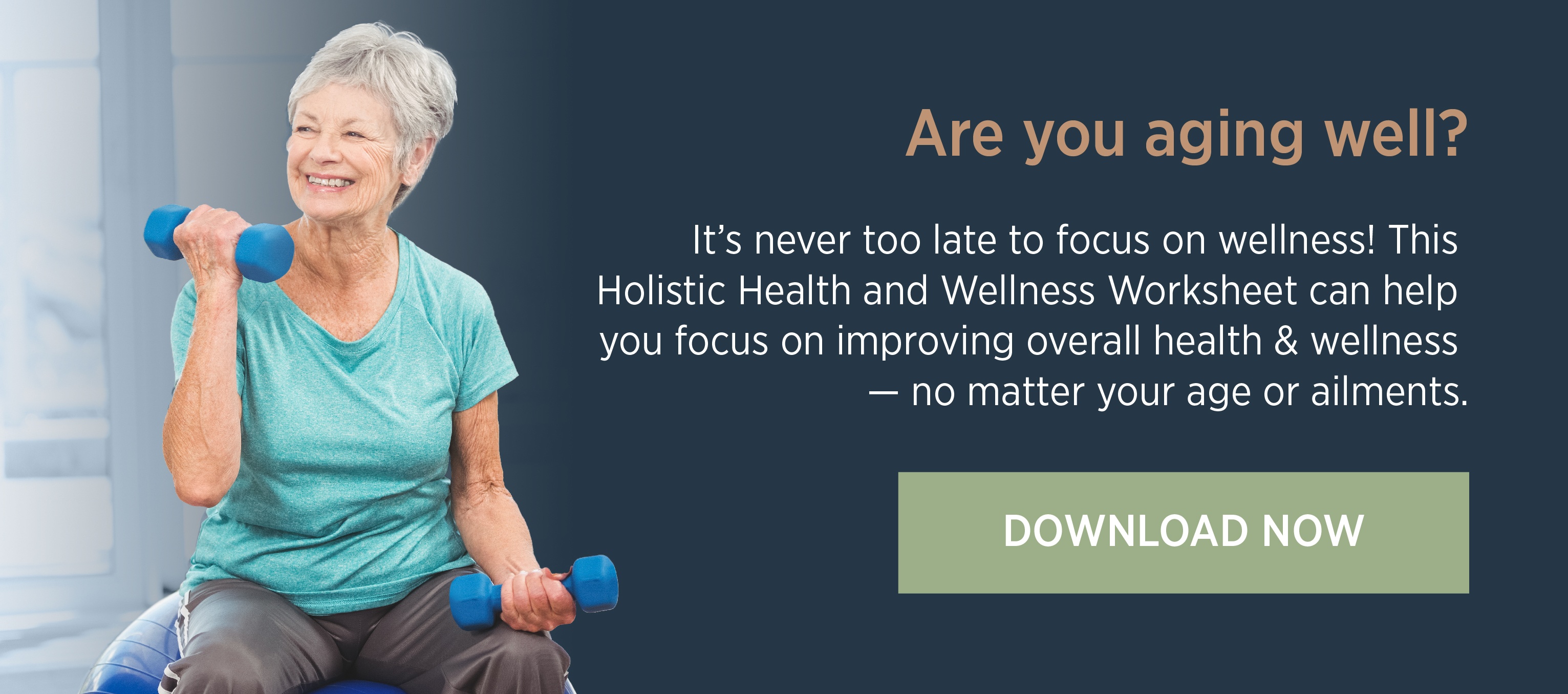
To many, the idea of growing “old” isn’t an appealing one — and pop culture hasn’t helped make the golden years seem very golden.
But research shows that aging well is possible, especially if you have a positive outlook on aging, a sense of purpose in life, and a strong social network. Just as important, if you even think that aging means declining health and eventual disability, studies show that the likelihood that you will physically deteriorate actually increases!
So what are the most pernicious myths about aging? And what does science say will help you help preserve your health and mobility as you age?
In this blog, we take a look at six common myths and misconceptions about aging. By replacing some of these old-age stereotypes with positive perceptions about aging, you can empower yourself and your loved ones to live a healthier, happier life.
1. Myth: Life After Retirement Is a Steady Decline
A mindset some older adults fall into is believing that they’ve already experienced the prime of their lives. Maybe your dad is always telling you that he can’t do what his physical therapist asks him to try. Or perhaps you often feel too weak and tired to go on a walk with the grandkids.
Some research suggests that merely expecting physical deterioration increases the likelihood that someone will physically deteriorate. Other research indicates that older adults who have internalized ageism experience greater prevalence of Alzheimer’s disease symptoms.
The truth is that how you approach the passing of the years has a lot to do with your happiness and health later in life. A positive attitude allows you to meet such challenges — both the good and bad — with less resistance. Research has shown that older individuals with more positive self-perceptions of aging live over seven years longer than those with less positive self-perceptions of aging.
2. Myth: Older Adults Should Avoid Exercise So They Don’t Get Injured
Many older adults fear that exercise puts them at risk of falling or that they’re too weak or have too many aches and pains to exercise. Perhaps you or your loved one fear that moving will harm your joints and cause more pain.
Actually, research shows that exercise can improve your joint pain and stiffness and is considered the most effective non-drug treatment for osteoarthritis. Not only that but studies show that regular exercise builds strength and stamina and improves balance, actually reducing the risk of falling, and getting moving can help manage pain and improve strength and self-confidence.
Almost anyone, at any age and with most health conditions, can participate in some type of physical activity. In fact, seniors over the age of 74 experience the largest relative gains in survival and healthy life from physical activity.
3. Myth: Loneliness Is a Normal Part of Aging
As you age, it becomes harder, and eventually impossible, to avoid the loss of close relationships. Grieving the loss of a spouse and close friends is a common experience. And serious illness and life stress can also make it more difficult to visit friends as well as to receive support and companionship.
But the idea that feeling isolated and alone is normal as you get older — or that older people like being alone or wish to withdraw from the outside world — is a common myth about aging. For many seniors, especially those who live in community settings, old age is a time for not only enjoying long-lasting relationships with friends and family but also making new friends.
Depending on your living situation, it might take some effort to make new connections or spend time with at least one person every day. But developing a support system and meeting new people who share your interests can help you navigate the challenges of aging that do exist.
4. Myth: All Older Adults Are Negative and Grumpy
Are you or a loved one a chronic complainer? Old age can be seen as a succession of losses, gradual or sudden: stopping work, losing a spouse, becoming ill, failing eyesight. These and other changes often give rise to difficult emotions, such as sadness, anxiety, loneliness, and lowered self-esteem.
Although some seniors become more critical and pessimistic with age, most negative emotions have a root cause, and turning into a grumpy old man or woman isn’t inevitable. It is possible to remain hopeful about the future and exhibit resilience when challenges arise.
In fact, research shows that the combination of being hopeful about aging and coping strategies, such as seeking social support, setting priorities, and acceptance, results in reduced depression and mortality risk, increased quality of life, and improved lifestyle behavior.
5. Myth: Seniors Contribute Little to Society
Typically, older adults have fewer career and family responsibilities, and when coupled with retirement savings and good health, the golden years offer rich possibilities for self-fulfillment and purposeful engagement. Yet this myth that older adults can’t learn new things or don’t contribute to society persists.
In reality, with years of personal skills and professional expertise, older adults are highly valued members of society. Older adults tend to have a strong work ethic and are great mentors and models for younger generations.
Finding your purpose and calling for each chapter of older adulthood leads to greater well-being, slower rates of mental decline, decreased mortality, and increased happiness in old age.
6. Myth: Older People Can’t Make Good Decisions About Important Issues
Nearly 50% of aging parents say they’re worried about being a burden to their children. They’re worried about complicating their adult children’s already busy lives. They’re afraid that by asking for help they’re losing control. They’re concerned that you’ll worry too much. Nearly 70% of those in their 70s and older worry about losing their memory, even though dementia affects 13.9% of the population age 71 and older.
Not only does age bring wisdom, but also cognitive decline isn’t inevitable. Plus, the desire to be independent does not diminish with age. If anything, it becomes more important.
One of the best ways you can support a loved one in old age is to employ shared decision-making. Whether navigating a financial decision or a medical choice, older adults should be involved as long as they are still competent. Participation by everyone will improve outcomes.
Reality: You Can Age Well
As you age, you’ll experience a fair number of changes and transitions, from children moving away and retirement to losing friends and unexpected changes in health. Feeling a sense of loss is normal.
But don’t believe everything you hear about aging. There are strategies that can help you stay healthy, keep you socially and intellectually engaged in the world around you, and create a living environment you can thrive in.
That’s why we created this Healthy Aging Assessment and Worksheet. The wellness assessment can help you think about the current state of your health and wellness and quickly identify what you can do to improve it. The worksheet can help you brainstorm ways to improve and enhance the eight dimensions of wellness for older adults that you might most benefit from focusing on.
Are you ready to identify ways to live with meaning, purpose, and intention?






